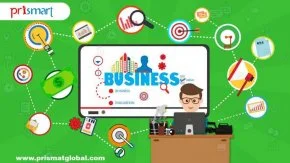Meta (Facebook) Partnerships with CBSE to bring Metaverse in Education
Meta (formerly Facebook) plans to partnership with India's largest school board, Central Board of Secondary Education (CBSE) to train over 10 million students and 1 million teachers in digital safety, online well-being and augmented reality (AR) over the next three years.
In one of the interviews the Meta founder and CEO Mark Zuckerberg said,
“I'm really excited about that partnership. I think it's just a huge opportunity to this entrepreneurial spirit and bring some of these tools around Metaverse and Virtual Reality and training to the education sector here in India”.
Meta and CBSE will collaborate for content curation and curriculum development that integrates latest technologies, Augmented Reality, and Virtual Reality that are relevant in today’s digital landscape as skill subjects for the students.
This partnership will equip the teachers with requisite skills to effectively use online tools for student engagement, said Biswajit Soha, Director (Skill Education and Training), CBSE.
What is Metaverse?
Metaverse comes from a combination of two words – Meta; meaning
beyond, transcending and Verse; root of the universe, cosmos. The
term was first coined by the cyberpunk science fiction novel Snow Crash
written by American novelist Neal Stephenson in 1992. Now, this term
means a three-dimensional virtual world that the users can interact with.
Benefits of using Metaverse in Education
The Education sector has undergone significant changes with the advent of new and advanced technologies. One such technology is Metaverse that has bridged the gap between conventional classroom and virtual learning. Metaverse makes the student communicate and learn in an immersive virtual environment. This technology also makes learning of complex subjects more fun and understandable to the students.
Open for all: Metaverse in education brings a virtual classroom into existence in which students from different backgrounds (income and social groups) can learn together in digital avatars. Metaverse breaks down all geographical barriers making students from across the world have access to quality education.
Experiential learning: Metaverse makes learning fun for students by giving a real-time experience. It enabled students in ‘learning by doing’so that they could build applications, experience historical events, and perform experiments.
Students with special needs: Students with special needs understand better with visuals and social cues. Metaverse technology translates gestures into speech (and vice-versa) using a set of VR images for hearing/speech-impaired students. For visually-impaired, it provides features like haptic feedback, audio-echo location and audio-descriptive menus.
Some benefits of Metaverse in education
- Enhanced interaction and immersive learning experiences.
- Hands-on learning beyond classrooms.
- Enables active learning rather than passive consumption of information.
- Fun-based learning about complex concepts and processes.
- Expands the horizon of imagination and the learning process.
Experts on the partnership between Meta (Facebook) and CBSE
Dr Biswajit Saha, Director (Skills Education and Trainings) at CBSE, said the pandemic has impacted lives all around.
"The learning process has undergone an unforeseen shift. This drastic change has brought along a wall of challenges in facilitating the process of learning. With the assistance of Meta, we hope to build on our online teaching and curriculum capabilities and make them available to students across the country," Saha added.
Top Tech Giants investing in Metaverse
Considering the possibilities associated with Metaverse, some top companies are investing in it. Let’s take a look at the list:-
NVIDIA’s Omniverse, GPU.
Epic Games’s Fortnight, Roblox, Unreal Engine, and MetaHumans.
Microsoft’s Satya Nadella Mesh for Microsoft Teams (2021) and purchase of Activision Blizzard, video game developer at $69B (2022), Microsoft Azure, HoloLens.
Meta (Facebook) launched metaverse space, Horizon Worlds (2020), Facebook Workrooms.
Apple’s ARKit and RealityKit.
The potential economic impact of Metaverse, or Web 3, in India is expected to range from $79 billion to $148 billion per year by 2035 which translates to 2.4% of the total GDP.




Cynthia Fowler
November 13, 2019 ReplyGenerally, I never comment on any blogs but your uncommon article is so convincing that I couldn’t stop myself to say something about it. You’re doing a great job, Sir, Please Keep it up.
Nicole Burke
November 12, 2019 ReplyGood job, a very captivating article and thanks for sharing such an alluring blog.